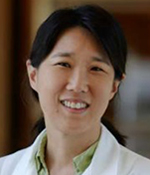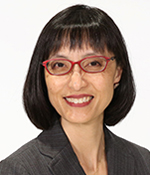At Hawaii Pacific Health (HPH), a system spanning four hospitals and several outpatient clinics across the Hawaiian Islands, quality improvement (QI) is more than a priority—it is embedded in the organization’s DNA.
As one of the largest health care systems in the state and home to the state’s first accountable care organization (ACO), HPH supports more than 1,000 physicians working toward shared goals: improving outcomes, reducing costs, and delivering exceptional patient care. The American Board of Medical Specialties (ABMS) Portfolio Program™ has become a key partner in supporting that mission.
Since becoming an ABMS Portfolio Program Sponsor in 2016, HPH has leveraged this innovative program to annually recognize and offer continuing certification credit to its physicians. In 2024, 250 physicians—one-quarter of all physicians in the ACO—received credit for the QI and patient safety work they were already doing and aligning board certification requirements with real-world practice.

“Quality improvement is really important to our organization,” said Lynn Iwamoto, MD, Associate Professor and Interim Chair of Quality at the John A. Burns School of Medicine and a physician with the Kapiolani Medical Center for Women & Children. “The ABMS Portfolio Program allowed us to increase engagement in collaboration and networking among physicians,“ continued Dr. Iwamoto, a neonatologist, certified in Neonatal-Perinatal Medicine by the American Board of Pediatrics (ABP).
Built for Physician Engagement
HPH’s journey with the ABMS Portfolio Program began with its pediatrics department in 2014, where early success led to system-wide expansion just two years later.
“We had already become an ABMS Portfolio Program Sponsor for pediatrics, and that brought a lot of value to our pediatricians,” Dr. Iwamoto explained. “In 2016, I was able to speak with our Chief Quality Officer about expanding this program to the rest of the physician staff.”
From there, support from leadership—and a clear alignment with ACO goals—helped the program grow. With its emphasis on value-based care, the ACO already functioned like a massive QI initiative, making it a natural fit for the ABMS Portfolio Program.
“The whole ACO program is like a giant QI project,” Dr. Iwamoto said. “Physician engagement in measures and educational activities within the ACO allows them to earn credit through our portfolio program.”
Real Projects, Real Impact
Through the ABMS Portfolio Program, HPH physicians are recognized for projects that span a wide range of specialties and topics—from improving diabetes management to enhancing cancer screening rates. These projects are often initiated by physicians themselves and vetted by a quality committee within the ACO.
“The ideas for QI projects come from the physicians,” said Dr. Iwamoto. “They’re vetted through the organization, and after approval, physicians are able to earn their credit.”
Dr. Iwamoto can share a real-life example of how the program works. “In neonatology, we have been working to improve our breast milk rates for preemie babies. In a quality improvement effort, we developed educational interventions to help educate the staff and parents about the importance of breast milk feedings,” she said. “As a result, we were able to show an increase in the number of babies who went home with breast milk feedings, which not only contributes to better outcomes for babies, but we were able to give our physicians credit for actively participating in the project.”
Seamless Participation, Minimal Burden
Perhaps the most praised aspect of the program at HPH is how seamlessly it integrates into the existing clinical workflow. With only two individuals managing the program, including the very busy Dr. Iwamoto, the ABMS Portfolio Program proves that efficiency does not require a large team, just the right strategy.
“It doesn’t take much,” Dr. Iwamoto said. “We started small with minimal resources, and the ABMS staff has been fantastic—very responsive and accommodating.”
Physicians do not need to create new projects or fill out excessive paperwork. The ACO tracks participation, and physicians are simply notified when they meet the criteria for continuing credit.
“Physicians are very appreciative of getting credit for the work they’re already doing,” Dr. Iwamoto noted. “Every year, we’re getting more physicians sending in their attestations to get their credit.”
Spreading the Word and Strengthening Community
A key to the program’s success has been proactive outreach. Dr. Iwamoto regularly attends quality meetings across the health system to identify eligible projects and engage with physicians directly.
“I go to as many health system quality committee meetings as I can,” she said. “If I hear about an appropriate project, I speak with the physicians and offer them credit through the portfolio program.”
In addition, the ACO’s newsletter features regular updates about the program, keeping it top of mind for physicians and administrators alike.
Recognition for Meaningful Work
At the heart of it all is a shared understanding: that physicians are already deeply engaged in QI—often without formal recognition. The ABMS Portfolio Program validates and celebrates that work.

“The Portfolio Program gives us credit for that work—without the extra paperwork,” said Marti Taba, MD, a family physician at HPH’s Kailua clinic. “To earn credit, I didn’t have to do anything additional. Our ACO already tracks our monthly progress and sends reports. It was seamless.” Dr. Taba is certified in Family Medicine by the American Board of Family Medicine.
From reducing the number of diabetes patients with uncontrolled A1C levels to increasing the completion of advanced care planning documents among senior patients, Dr. Taba’s projects reflect the kind of high-impact work happening across HPH. And like many physicians in the system, she values the opportunity to collaborate with colleagues in other specialties. In 2024, HPH physicians in 16 different specialties were able to earn continuing certification credit.
“It’s fun for me to collaborate across specialties,” Dr. Taba said. “Whether or not we get continuing credit for every project, working together improves care for our patients—and that’s the most important part.” Dr. Taba has recently collaborated with other specialists on diabetes and aortic aneurysms.
A Model for Other Health Systems
For other health systems considering becoming an ABMS Portfolio Program sponsor, Dr. Iwamoto offers a clear message: it is worth it.
“The ABMS staff have been fantastic,” Dr. Iwamoto said. “Start small. With leadership’s backing, and the right infrastructure, it becomes a seamless part of your QI work.”
At HPH, the ABMS Portfolio Program has become much more than a certification tool—it is a catalyst for engagement, collaboration, and continuous improvement.
-
Read More:
- Portfolio Program |
- Quality Improvement (QI) |
